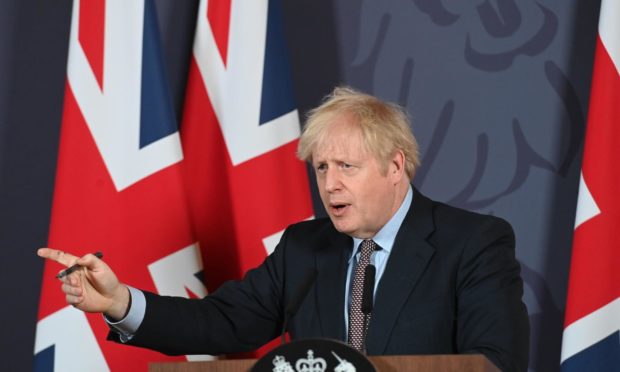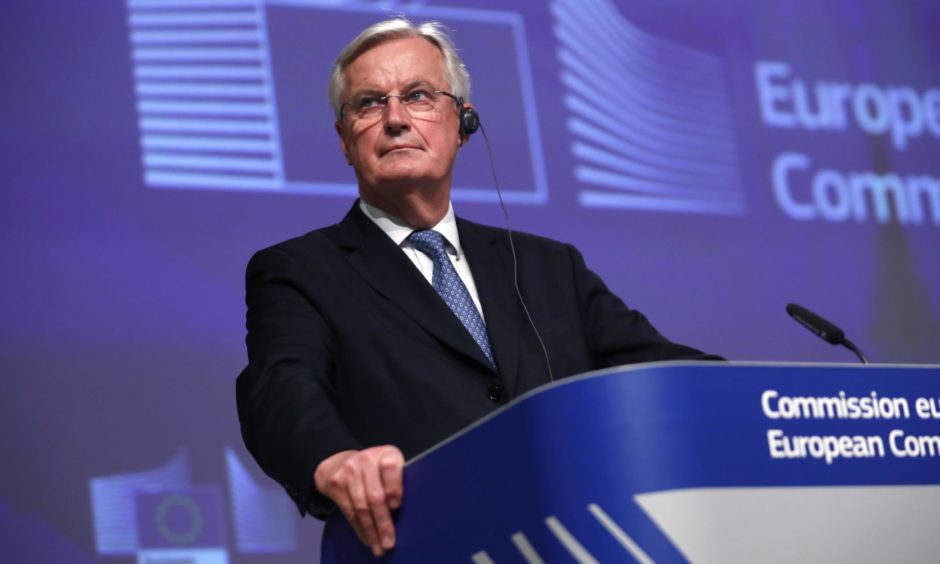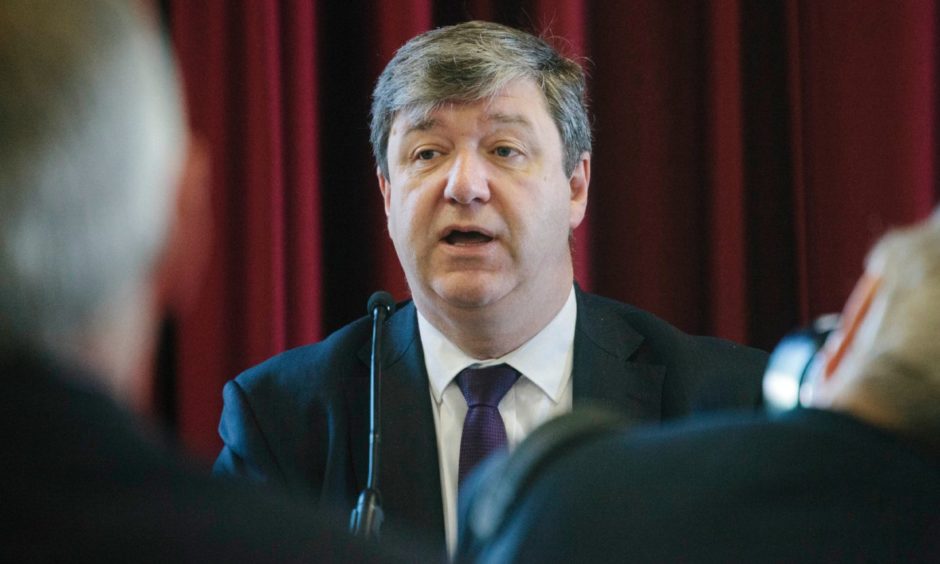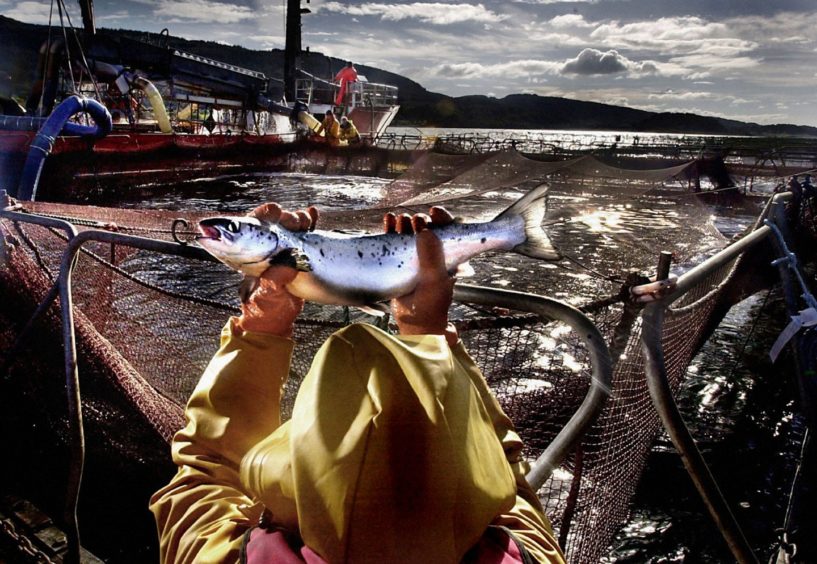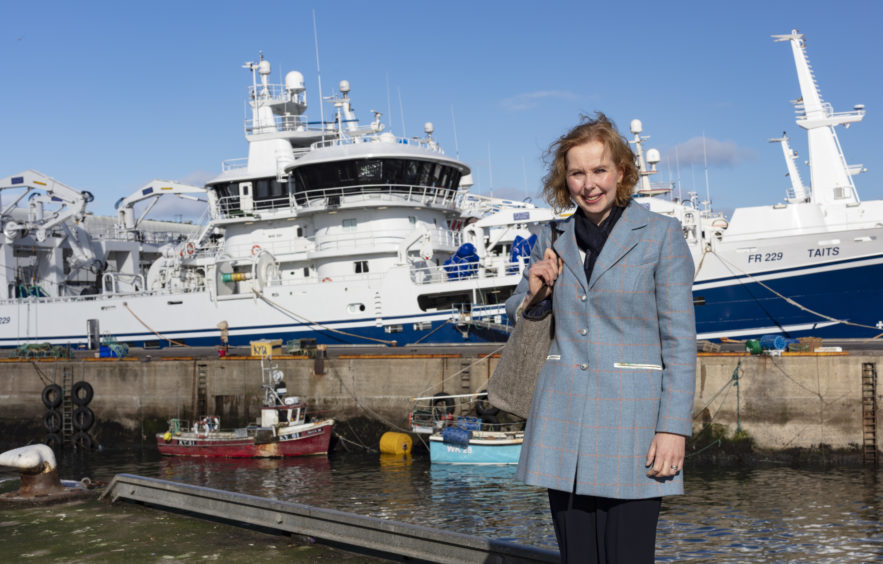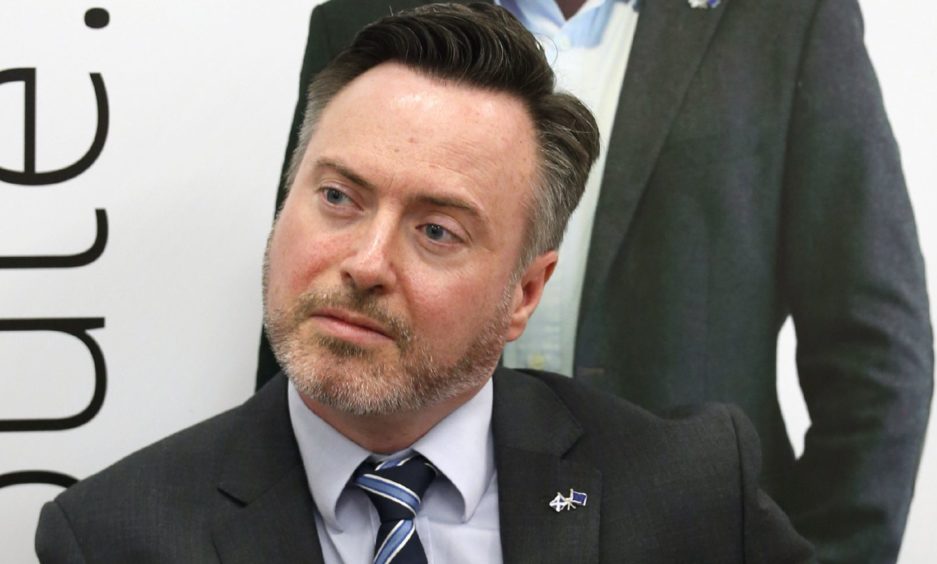EU fishermen will get access to UK waters for another five-and-a-half years, under the EU-UK exit deal.
European Commission president Ursula von der Leyen announced on Christmas Eve an agreement had been struck between both parties that was “fair, balanced, right and responsible”.
Speaking in English, French and German, Ms von der Leyen confirmed the UK would have tariff-free, quota-free access with the EU single market as long as the UK respected the bloc’s “rules”, but warned there would be consequences if the UK broke that trust.
Prime Minister Boris Johnson said the agreement allowed the UK to “take back control”, as “promised” in the EU referendum.
The deal is done. pic.twitter.com/zzhvxOSeWz
— Boris Johnson (@BorisJohnson) December 24, 2020
First Minister Nicola Sturgeon said it “beggars belief” Scotland is being taken out of the single market during a global pandemic.
Reciprocal fishing agreed
There will be a further five-and-a-half years’ “predictability” for fishing communities, with the UK leaving the common fisheries policy.
Stock quotas for UK fishers will increase over a five-year timeframe, incrementally between now and 2026.
In that time, EU fishing vessels will still have full access to fish in UK waters.
On fishing, the EU said the deal between the two agreed on a new framework for the joint management of fish stocks in EU and UK waters.
The UK will be able to “further develop British fishing activities”, while the activities and livelihoods of European fishing communities will be “safeguarded and natural resources preserved”.
EU chief negotiator Michel Barnier added: “We have achieved reciprocal access to waters and to resources, and with the new distribution of fishing quotas and fishing opportunities which has been directly agreed, as is only natural, between the president of the European Commission Ursula von der Leyen and Prime Minister Boris Johnson, with taking account of Britain’s new status as an independent coastal state, that is a state which will no longer be part of the common fisheries policy just a few days from now.
“This agreement will require efforts. I know the European Union will support its fishermen and women, will accompany them, and that is our commitment.”
Lib Dem MP for Orkney and Shetland Alistair Carmichael said: “It is no state secret that fishing has been at the heart of negotiations being prolonged and it’s welcome for everyone that there’s a deal at all.
“But on first flush this sounds rather different than what the fishing community was promised.
“A deal with a five-year transitional period is maybe not the biggest difficulty but at the end of it the expectation seems to remain that only 25% of quota held by EU nations for British waters will be returned to the UK fleet.”
Promises ‘have been broken’
First Minister Nicola Sturgeon said promises on fishing had been broken, adding: “While we do not yet have full details on the nature of the deal, it appears major promises made by the UK Government on fisheries have been broken and the extent of these broken promises will become apparent to all very soon.”
Other EU country’s fishing federations reacted angrily to the announcement.
Johan K. Nooitgedagt, of the Dutch Fishermen’s Union, said: “Divorce makes people suffer.
“It gives fishermen a sense of the fact that they will be allowed to fish in British waters for at least 5.5 years, but this deal is anything but certainty.
“In 5.5 years, there will be renegotiations and our fishermen may not only lose their fishing grounds, but also more quota.
“It would be better for the negotiating position if the future of EU fishing in British waters remains linked to the free trade market.
“The 25% reduction in the quota hurts and cannot be explained. The quota used to be divided on the basis of historical catches and transferred over time by entrepreneurship.
“It would therefore be fair for the British to settle for the part of the TAC that they already have in their hands.”
Fish processors ‘concerned’
Despite a deal being reached, fish producers in the North East still fear the ramifications of gridlock in the country’s ports.
Tavish Scott, chief executive of the Scottish Salmon Producers Organisation, said: “We are pleased the negotiators have at last secured a deal. This will alleviate some of the serious problems that would come from a ‘no deal’ Brexit.
“But we still have concerns. The disruption at the Channel right now is hitting our members’ ability to export.
“Brexit means the Scottish salmon sector now face the reality of lots more red tape, bureaucracy and paperwork, which are the reality of the extra trade barriers that come with Brexit.
“So until we see how this UK-EU agreement actually works in practice, it is impossible to make a clear judgement on how the new trading arrangement in 2021 will affect salmon farming.”
He said that salmon farming’s big worry remains the potential for disruption at the Channel.
Mr Scott added: “Salmon is a perishable product and any delay in getting the fish to our European markets will have serious consequences.
“If consignments end up being stuck in queues of traffic for hours, the knock-on effects on eventual market price can be severe. That is exactly what we have seen since Sunday. So the omens are not good.”
‘Hugely disappointing’
Elspeth Macdonald, chief executive of the Scottish Fishermen’s Federation, said that while the full details of the Fisheries Agreement reached between the UK and the EU had yet to emerge, on the surface it did not appear to deliver on the industry’s aspirations.
“What has been outlined so far is that full access will be granted to EU vessels for effectively six years from January.
“Over the same timescale the increase in quota shares for UK vessels will be 25 per cent.
“The government has not yet provided the full text of the agreement or how this increase will apply to particular species, so it is very difficult to make a detailed assessment of the impact on our industry.
“However, the principles that the government said it supported – control over access, quota shares based on zonal attachment, annual negotiations – do not appear to be central to the agreement.
“After all the promises given to the industry, that is hugely disappointing. We expect to be able to study the detail in the coming days and will issue a further statement when we have been able to do so.”
Politicians react
SNP Foreign Affairs spokesperson and former MEP Alyn Smith said: “Mr Johnson has avoided no deal so deserves credit for that, but we should not be distracted that this deal is far poorer than the advantages that Scotland enjoyed as part of the European Union, and is also going to disappoint people who did vote for Brexit because it delivers nothing like their expectation.
“Mr Johnson should enjoy his moment because we will make sure he is held responsible for the consequences of this unsustainable poor package.”
Scottish Conservative Leader, Douglas Ross MP said the timing was “great news” for the country
He added: “This deal has been secured as a result of the hard work and commitment of the UK and European negotiating teams.
“Both sides recognised the importance of reaching agreement on a range of complex issues and avoiding a damaging no-deal outcome. To have done so just in time for Christmas is great news.
“Crucially, this will protect Scottish jobs and our fishing communities will be far better off outwith the hated commonfFisheries policy.
“It is vital that we now move on from past divisions and focus entirely on working together to fight coronavirus and rebuild Scotland’s economy.”
